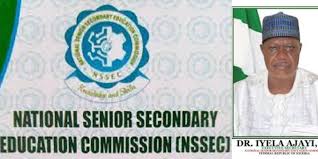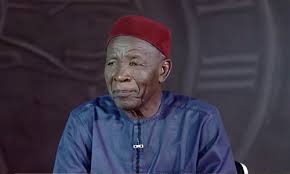
Nigerian schools must integrate AI into curriculum – Expert
Nigeria could fall behind international standards if it does not take immediate action, according to data and artificial intelligence expert Abel Aboh, who has urged the government to incorporate AI education into school curricula starting at the nursery level. Aboh, a Data Manager, AI leader, and board member at The Data Lab in Scotland, stressed the significance of preparing young Nigerians to not only consume AI technologies but also to create and innovate with them in an interview with Channels Television on Wednesday.
"We must begin in the early years. When we discuss careers in the early years, we are referring to individuals who are in nursery school. Countries like China are already beginning with nursery and primary school, which is absurd to say," he said. According to Aboh, teaching AI and digital skills at a young age is now necessary rather than optional.
He emphasized that Nigeria needs to catch up because schools without computers or internet access are no longer viable in the modern world. "Consider a school without computers or the internet. It isn't feasible. Artificial intelligence must be incorporated into the curriculum. This is not a matter of choice.
It is imperative that this take place," he stated. Although initiatives such as the reported training of three million Nigerians in tech skills are praiseworthy, he noted that their reach is still constrained given the country's population and young population. "You brought up a number about 3 million, that’s a good number. But in my projection, we need to be targeting 10 million young Nigerian youths at the moment, not just 3 million,” Aboh said.
He called for AI integration across Nigeria’s roughly 200 universities and colleges, including secondary and primary schools.
“These institutions need to be using artificial intelligence as part of their curriculum; not just coding or data science, but how to develop and create those tools as well.”
Addressing concerns about the urgency of tech education amid widespread poverty and hunger, Aboh argued that AI could play a crucial role in addressing economic challenges by creating jobs and unlocking innovation.
“When someone is hungry, what the person needs is food. And food does not fall from the sky, you’ve got to create it. People are hungry because they’re not economically active. Artificial intelligence will help you earn money, create things you can sell, and feed yourself,” he said.
He stressed that Nigeria can no longer rely solely on traditional methods to address societal challenges.
“We can’t just go into the farms and keep farming every day. It’s not possible. We’ve got to apply artificial intelligence to everything we do.”
On government action, Aboh revealed that Nigeria’s national AI strategy remains in draft form, urging policymakers to formalize it and act quickly.
“We’ve got the national AI strategy, unfortunately, the strategy is under draft and that’s sitting in the shed. That’s not good enough. We need to move that from a draft to an active policy,” he said.
He also highlighted the importance of fast-tracking the Digital Economy Bill, which is still awaiting passage into law.
“Government needs to set the trajectory and the policy, and then the public sector needs to galvanize quite quickly,” he added.





